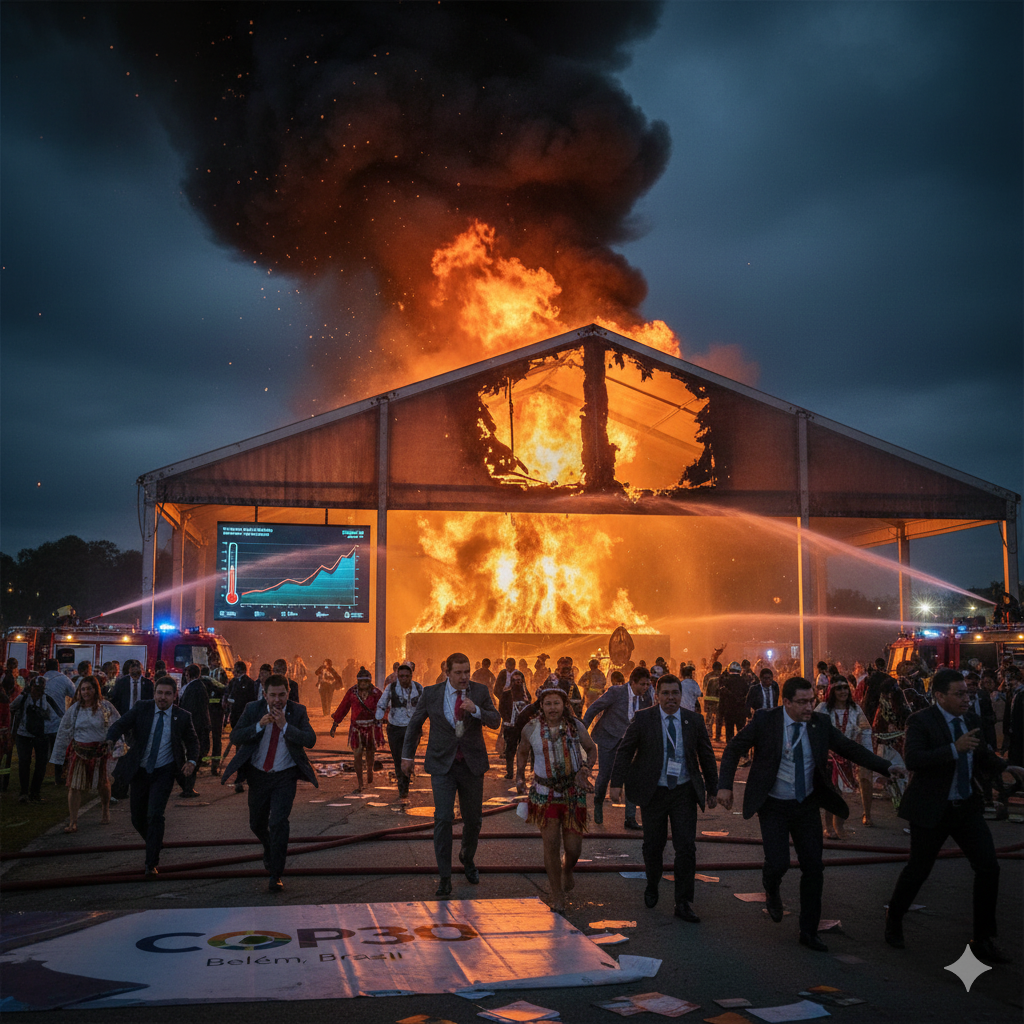The Incident and Evacuation
The COP30 United Nations climate talks in Belém, Brazil, were dramatically interrupted when a fire erupted in one of the country pavilions on Thursday, the second-to-last day of the scheduled two-week summit. The blaze quickly tore a hole in the fabric roof of a temporary structure within the main conference “blue zone,” forcing a rapid evacuation of delegates, ministers, and climate activists who were deep in the most critical phase of negotiations.
Brazilian Tourism Minister Celso Sabino confirmed the fire was brought under control quickly, with no injuries reported, though 13 people were treated for smoke inhalation. The cause is not yet officially known, but initial reports from officials and delegates suggest an electrical malfunction or short circuit may have been responsible, with some delegates claiming to have previously seen exposed wires and water dripping onto electrical panels in the makeshift facilities.
Impact on the High-Stakes Talks
The timing of the fire was highly disruptive, occurring just as ministers and senior diplomats were working late into the night to bridge enormous gaps on the summit’s most contentious issues:
-
Fossil Fuel Phase-Out: Negotiators were attempting to finalize a “roadmap” for transitioning away from coal, oil, and natural gas.
-
Climate Finance: Discussions over financial aid from wealthy nations to poorer countries for climate adaptation and mitigation were deadlocked.
The evacuation and subsequent safety checks effectively stalled negotiations for a significant part of the day. Veteran observers noted that this forced break drastically reduced the time available to finalize a robust deal before the scheduled close. UN Secretary-General António Guterres had only hours earlier urged delegates to find an “ambitious compromise,” stating that the world was watching and demanding results.
The disruption raises concerns that the Brazilian COP presidency might be pressured into accepting a “lowest common denominator” agreement to meet the deadline, potentially resulting in a final text that lacks the ambition needed to meaningfully address global warming.
700 701 702 703 704 705 706 707 708 709 710 711 712 713 714 715 716 717 718 719 720 721 722 723 724 725 726 727 728 729 730 731 732 733 734 735 736 737 738 739 740 741 742 743 744 745 746 747 748 749 750 751 752 753 754 755 756 757 758 759 760 761 762 763 764 765 766 767 768 769 770 771 772 773 774 775 776 777 778 779 780 781 782 783 784 785 786 787 788 789 790 791 792 793 794 795 796 797 798 799 800 801 802 803 804 805 806 807 808 809 810 811 812 813 814 815 816 817 818 819 820 821 822



